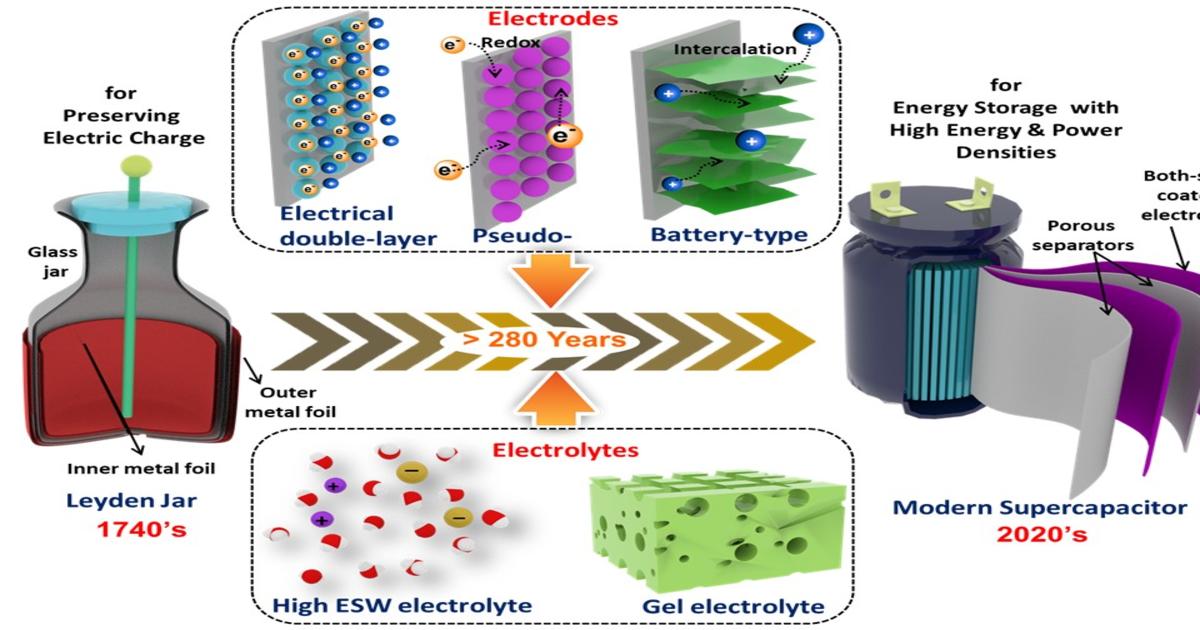High-Performance Supercapacitor
A special issue of Batteries (ISSN 2313-0105). This special issue belongs to the section "Battery Modelling, Simulation, Management and Application".
Deadline for manuscript submissions: closed (25 April 2024) | Viewed by 11489

Special Issue Editors
Interests: supramolecular chemistry; redox-active polymers; aqueous batteries; organic-inorganic hybrid materials; hybrid supercapacitors; hydrogen and oxygen evolution reactions; electrochemical ammonia synthesis; all-organic energy storage devices; superhydrophobic coatings
Special Issue Information
Dear Colleagues,
The increased concern regarding the depletion of fossil fuels and the emanation of greenhouse gases necessitates the advancements of energy storage devices for the effective utilization of renewable energy sources. In this scenario, high-performance energy storage devices (batteries and supercapacitors) are the best candidates to tackle the present and future energy crises. Although supercapacitors deliver less specific energy than batteries, they are unavoidable in practical applications, especially in hybrid electric vehicles and electronic gadgets.
Unprecedented strategies need to be developed to boost the specific energy of supercapacitors. The main focus should be centered on their important components, namely, active electrode materials, separators, and electrolytes. Further, an in-depth understanding of electrode kinetics and the various factors influencing their overall performance is crucial to achieving a higher efficiency of energy storage and its utilization. With this in mind, this Special Issue is designed to compile recent advancements in the field of high-performance supercapacitors for next-generation energy applications.
Potential topics include but are not limited to:
- Design of novel electrode materials;
- Aqueous, non-aqueous, hybrid, and polymer electrolyte systems;
- Polymer membrane separators;
- Supercapacitor–battery hybrid devices;
- Solid-state supercapacitors;
- In situ evaluation techniques;
- Devices fabrication techniques;
- Electrochemical kinetic studies;
- Computational investigations.
Dr. Balaraman Vedhanarayanan
Dr. K. C. Seetha Lakshmi
Guest Editors
Manuscript Submission Information
Manuscripts should be submitted online at www.mdpi.com by registering and logging in to this website. Once you are registered, click here to go to the submission form. Manuscripts can be submitted until the deadline. All submissions that pass pre-check are peer-reviewed. Accepted papers will be published continuously in the journal (as soon as accepted) and will be listed together on the special issue website. Research articles, review articles as well as short communications are invited. For planned papers, a title and short abstract (about 250 words) can be sent to the Editorial Office for assessment.
Submitted manuscripts should not have been published previously, nor be under consideration for publication elsewhere (except conference proceedings papers). All manuscripts are thoroughly refereed through a single-blind peer-review process. A guide for authors and other relevant information for submission of manuscripts is available on the Instructions for Authors page. Batteries is an international peer-reviewed open access monthly journal published by MDPI.
Please visit the Instructions for Authors page before submitting a manuscript. The Article Processing Charge (APC) for publication in this open access journal is 2700 CHF (Swiss Francs). Submitted papers should be well formatted and use good English. Authors may use MDPI's English editing service prior to publication or during author revisions.
Keywords
- energy storage
- composite electrodes
- high-voltage electrolytes
- separators
- electrical double layer
- pseudocapacitance
- electrochemical intercalation
- diffusion-controlled processes
- surface-controlled processes
- hybrid supercapacitors
Benefits of Publishing in a Special Issue
- Ease of navigation: Grouping papers by topic helps scholars navigate broad scope journals more efficiently.
- Greater discoverability: Special Issues support the reach and impact of scientific research. Articles in Special Issues are more discoverable and cited more frequently.
- Expansion of research network: Special Issues facilitate connections among authors, fostering scientific collaborations.
- External promotion: Articles in Special Issues are often promoted through the journal's social media, increasing their visibility.
- Reprint: MDPI Books provides the opportunity to republish successful Special Issues in book format, both online and in print.
Further information on MDPI's Special Issue policies can be found here.






